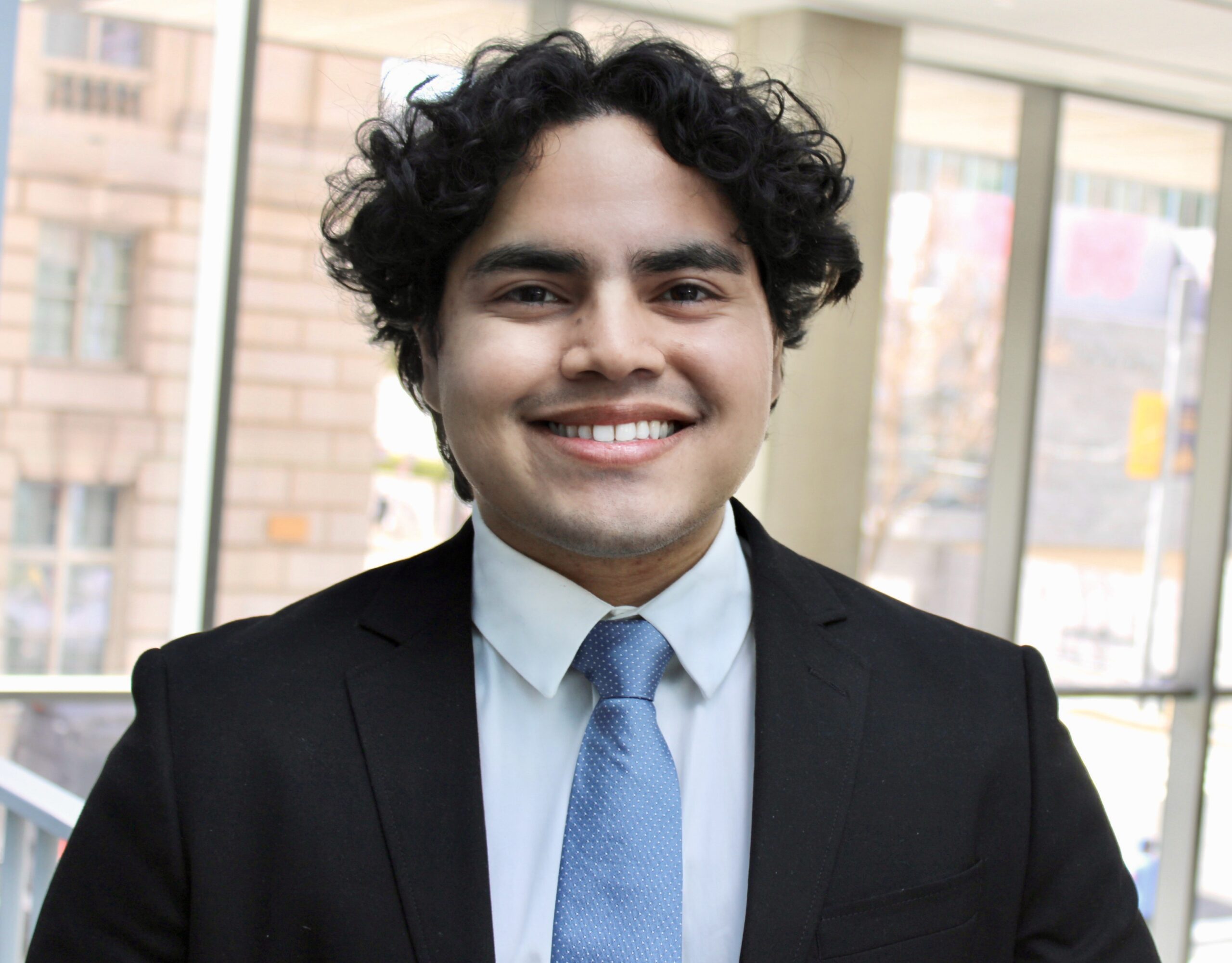Helping Asylum Seekers Shaped Acosta Scholar Daniel Caballero’s Path to Law School

2024 Jeanette M. Acosta Scholarship recipient Daniel Caballero ’26 assisted migrants at the southern border for almost two years. The ability to engage in social justice work through a wide range of courses, clinics, law centers projects, student groups, and pro bono programs at UC Law SF deeply appealed to him.
Before entering law school, Daniel Caballero ‘26 spent nearly two years helping asylum seekers at the U.S.-Mexico border in South Texas, working alongside attorneys from the global law firm Jones Day.
He watched as lawyers stayed composed and professional in tense and difficult situations. And he observed the difference their sense of empathy and compassion made as they counseled asylum seekers who’d endured traumatic journeys to the U.S.
“I saw how they worked and thought, ‘That’s something I could do,’” he said, “And there was a feeling that it felt right. It felt fulfilling.”
That was one of the catalysts that led him to pursue a JD at UC Law San Francisco. The ability to engage in social justice work through a wide range of courses, clinics, law center projects, student groups, and pro bono programs deeply appealed to him.
Caballero grew up in Dallas but spent his childhood summers visiting family in El Salvador, which he said fostered a strong connection to the people, language, and culture there.
After graduating from the University of Texas at Austin, where he double-majored in sociology and government, he decided to apply to work for Jones Day’s Laredo Project, which represents migrants at the U.S. Mexico border. Caballero said he was motivated to help people who, like his Salvadoran parents, came to the U.S. in search of a better life for themselves and their children – and those fleeing persecution and violence in their home countries.
“My ability to get an education and accumulate knowledge – all of that gives me a sense of duty to people and especially, at this time, people coming from Central and South America,” he said. “I see myself in them.”
As a project assistant, he informed more than 15,000 migrants of their legal rights — many of whom only had English-language documents to guide them. He also provided English-Spanish translations for attorney-client meetings and helped prepare detained immigrants for credible-fear interviews with U.S. immigration officials.
His initial interest in law was sparked a few years earlier when he took an undergraduate class on the legal history of the U.S.-Puerto Rico relationship – a topic he found fascinating – taught by a professor who previously worked as a lawyer and became his mentor.
At UC Law San Francisco, Caballero is a member of the First Generation Program and the Legal Education Opportunity Program (LEOP) – two programs that provide support and resources to students from adverse backgrounds and those who are the first in their families to attend college, or, as in Caballero’s case, the first to attend law school.
“The programs have made me feel less anxious about law school,” he said. “They go above and beyond to make sure we feel welcomed here, that we know we’re here for a reason, and that this is a place where we can thrive.”
This year, Caballero was named winner of the 2024 Jeanette M. Acosta Scholarship, which honors the legacy of a 2016 alumna who advocated for the rights of marginalized people. Acosta died in 2017 after a valiant, year-long battle with cervical cancer.
“I view this award not only as a recognition of my own prior service, but also as a stewardship of Jeanette’s venerable legacy and a tribute to her fervent spirit for social justice,” he said.
The $5,000 scholarship is awarded annually to a first-year law student who is a member of the UC Law SF Latinx Law Students Association. A committee chooses the winner based on who it feels most demonstrates a commitment to social justice and has done work to support the Latinx community.
“Although we reviewed several meritorious applications, Daniel was chosen by the scholarship committee because, like Jeanette was, Daniel is ‘boots on the ground,’” the committee said in a statement.
Beyond the opportunities for hands-on legal training in clinical courses and access to dedicated academic and career advisors, Caballero said what he likes most about UC Law SF is the people – including second-year students who mentored him through the Latinx Law Students Association and professors like Zachary Price, who made himself available to help students outside of class and ensured they had the best resources and support to conquer his constitutional law class.
He also connected with a group of like-minded students during a recent Spring Break pro bono trip to the U.S.-Mexico border in Arizona, where he and five other students learned about shelter and other services provided to migrants by two nonprofits there.
Caballero said he looks forward to continuing his law school journey and using his background, skills, and knowledge to make the world a better place.
“I have a personal philosophy that the acquisition of knowledge is to be used for the betterment of society,” he said. “My hope is to use the law as a tool to uplift and empower others.”